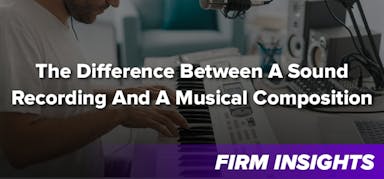
Scarinci Hollenbeck, LLC
The Firm
201-896-4100 info@sh-law.comAuthor: Scarinci Hollenbeck, LLC|September 27, 2013
Many states currently allow photographers to snap images of celebrities’ children when they’re in a public setting, but a new law in California prohibiting this activity is calling First Amendment rights into question.
California Gov. Jerry Brown enacted a new law that bars members of the paparazzi from “harassing” children of public figures. This includes speaking to or touching children of famous individuals, which may now result in fines of up to $10,000 and up to a year in prison. Parents will also be permitted to bring a civil action against violators to seek damages and attorneys’ fees.
Many celebrities – including Halle Berry and Jennifer Garner – support the legislation and recently gave testimony about the emotional trauma and fear that shouting crowds of photographers have had on their young children. In addition, they argued that photographers should be banned from taking photographs of and publishing photos of minors without parental consent.
In addition to celebrities, the law is also geared toward helping children of people who serve in high-profile positions – such as lawmakers, police officers, and judges – who also face harassment.
However, media organizations are in staunch opposition to the new entertainment law, which they argue blocks legitimate news gathering. Proponents of the law responded by that First Amendment rights are not in jeopardy, because the law seeks to govern the conduct and activity of photographers, but does not prohibit them from taking pictures.
The First Amendment has historically been used by the paparazzi to shield them from litigation, but a recent string of lawsuits filed against overly aggressive photographers could be a game-changer. Photographers have been accused of blocking celebrities from navigating the roads safely, getting too physically close to snap a photograph and prying on private property. As the number of lawsuits against the paparazzi builds, many are wondering how it will impact First Amendment rights.

The Firm
201-896-4100 info@sh-law.com



Many states currently allow photographers to snap images of celebrities’ children when they’re in a public setting, but a new law in California prohibiting this activity is calling First Amendment rights into question.
California Gov. Jerry Brown enacted a new law that bars members of the paparazzi from “harassing” children of public figures. This includes speaking to or touching children of famous individuals, which may now result in fines of up to $10,000 and up to a year in prison. Parents will also be permitted to bring a civil action against violators to seek damages and attorneys’ fees.
Many celebrities – including Halle Berry and Jennifer Garner – support the legislation and recently gave testimony about the emotional trauma and fear that shouting crowds of photographers have had on their young children. In addition, they argued that photographers should be banned from taking photographs of and publishing photos of minors without parental consent.
In addition to celebrities, the law is also geared toward helping children of people who serve in high-profile positions – such as lawmakers, police officers, and judges – who also face harassment.
However, media organizations are in staunch opposition to the new entertainment law, which they argue blocks legitimate news gathering. Proponents of the law responded by that First Amendment rights are not in jeopardy, because the law seeks to govern the conduct and activity of photographers, but does not prohibit them from taking pictures.
The First Amendment has historically been used by the paparazzi to shield them from litigation, but a recent string of lawsuits filed against overly aggressive photographers could be a game-changer. Photographers have been accused of blocking celebrities from navigating the roads safely, getting too physically close to snap a photograph and prying on private property. As the number of lawsuits against the paparazzi builds, many are wondering how it will impact First Amendment rights.